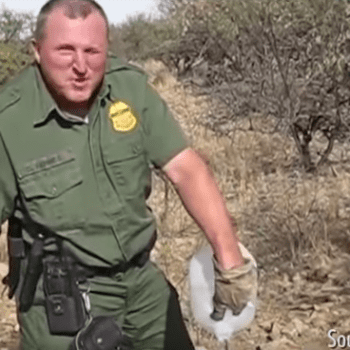Do you suffer from church related trauma? This is a post for those who do, and those who don’t.
Maybe the extent of your church trauma is having to sit through stuff like this:
Or, maybe your church related trauma is a little more serious.
When we were dating, one of the things my wife used to say that infuriated me was “I don’t like Christians”.
“How can you not like Christians? That’s what you are, you’re a Christian!” I’d respond with total disgust.
She’d further infuriate me by reading authors I was convinced were influenced by Satan himself, and would frequently laugh and yell out “yes! That’s so true!” while reading books like Blue Like Jazz. I couldn’t figure out how she could both be a Christian yet also express such hostile feelings toward expressions of American Christianity. She wholeheartedly was on board with Jesus, but was a lot more rough around the edges when it came to church, and other Christians.
That didn’t make sense to me- Jesus, and his followers, seemed mutually exclusive. It simply wasn’t possible to adore one, and yet want to jab the other in the eye with a hot stick.
Or so I thought.
I was convinced that she was spiritually rebellious, and had a serious “heart issue” that she needed to repent of. But, the truth I couldn’t yet see was that she was wounded, guarded, and in a protective mode around other Christians because of traumatic religious experiences in her past- like having the demon of rebellion prayed out of her (which from my observation, clearly didn’t work).
After breaking up with her for six months because I felt we were spiritually incompatible (she recoiled in horror at the mere mention of the word “submit” which was more evidence of her lingering rebellious spirit), I came to finally realize that she didn’t have a sin issue after all… she just had Post Traumatic Church Syndrome.
Post Traumatic Church Syndrome, or PTCS for short, doesn’t appear in the DSM IV and I’m quite sure it won’t make the DSM V either, no matter how controversial the new manual will be. However, I am convinced that thousands of Americans have experienced some level of PTCS as a result of church related trauma.
What is PTCS? Well, it’s not an official illness, so there’s not an official definition. If I were to develop a working definition for the concept however, I would describe it as the “normal and natural reaction to church trauma of any kind.” Which really means, everyone’s trauma reaction looks differently. People with PTCS have in one way or another, been wounded by the very place they went to seek healing. These wounds, create an emotional barrier for a person to engage in church, create barriers for them to connect with God, and create barriers for people to develop authentic community with other followers of Jesus.
The push back I experienced from my wife around issues in American Christianity and church, were simply a result of previous church related trauma. They weren’t evidence of anything that was wrong with her, but were evidence of wrong things that were done to her.
Perhaps the strangest realization was that I had PTCS too; we simply expressed our wounds in different ways. Her reaction was fight, flight, or flee and my equally broken expression of trauma was more similar to concepts of abuser loyalty, where I worked to assimilate my thinking to that of the oppressor in hopes that one day I’d be good enough… that one day I’d be accepted… that one day I’d be included and embraced.
Same syndrome, different expressions. She was having the demon of rebellion prayed out of her at church while I was sitting in the office of the Dean of Men at Word of Life Bible Institute being accused of practicing witchcraft on campus, because I was “rebellious” and “rebellion is the same as witchcraft“.
Ironically, neither one of us were actually rebellious, we were just individuals with inquisitive minds who questioned things… and let’s just say, that’s sorta frowned upon in fundamentalist circles.
Church trauma runs deep, because it cuts into our identity. When we want to be “good”, when we legitimately want to do the right thing and when we deeply want to be authentic Jesus followers, and someone tries to show us that we’re not very good at it, it messes with our concept of self.
Given enough experiential trauma or even one serious incident, people walk away. They get discouraged, depressed, and hurt, and they walk away.
Sometimes, they appear to walk away from Jesus entirely- which only encourages people to “lovingly” point out all over again that they suck at being a Christian (which, those of us who embrace authenticity, already know). However, usually the case isn’t at all that they’ve walked way from Jesus- it’s simply that they’ve just walked away from the organization associated with the people who have harmed them. People who have walked away because of church trauma will often externally appear resentful or even hostile toward anything that feels too “religious” to them, while internally they still want to follow Jesus and long to connect with God in deeper and more meaningful ways.
Church, ironically, becomes the barrier when in reality it should be the gateway.
So, if this describes you– if you’re someone who’s been wounded by people in church to such a degree that you’ve walked away, please know that my heart is with you. I have been there, and I completely get it. I took years off from church because I was so turned off and so wounded by previous experiences. Ironically, when I finally took a risk and went to church one Sunday, the sermon was titled “Why Mother Teresa is in Hell Today”. Lets just say, I took another church vacation…
I get why walking away seems to make sense. But, I also know that walking away entirely doesn’t solve the problem. The path of Jesus was never one intended to be walked in isolation, but rather is one intended to be walked in the context of community– messy, bumpy, community. Sometimes it’s your lifeblood, and other times it’s a blood-sucker- but the alternative of isolation doesn’t look much better.
If you have church related trauma, let me encourage you in two ways:
1. While it is good and healthy to shed off all of the nonsense American Christian Culture often associates with Jesus, please don’t throw the baby Jesus out with the Church’s dirty bathwater. It’s easy to do, and often understandable. However, please know that the people who have hurt you did not actually represent the real Jesus. The real Jesus is loving beyond belief and preferred to spend his time with drunks, prostitutes, and tax collectors instead of people in church. He is patient and kind; he has reconciled you through the cross and is not holding your sin against you. Jesus is sooo different than what you have experienced.
In fact, Jesus reserved his harshest words for religious people who hurt and oppressed others in the name of God. It actually got him killed.
2. Please, consider giving a faith community another chance. Understand that as long as the Church is made up of broken people like you and me, we’re going to hurt each other. That doesn’t make it okay, and doesn’t mean we have to allow ourselves to be mistreated and abused, but it also doesn’t mean that we should walk away completely. Be willing to give things another chance, and seek out a loving Christian community. I’m not saying it is always easy to find- but I do know this: once you find one that is truly loving and understands the importance of community, it will be a life-giving experience. You may even see past wounds slowly closing and healing until there’s just a scar. That’s where I am at, and ironically, it was only through a re-engagement of a faith community that I found my deepest levels of healing.
3. Consider forgiving those who have hurt you. We often misunderstand forgiveness, thinking that it is an endorsement of the harmful behavior. In reality, forgiveness exists for the benefit of the one wounded, not the one who did the wounding. Forgiveness means you are unwilling to carry the heavy bag of resentment someone else put on your shoulders. Forgiveness flings it off, and helps your walk become a little easier.
If everything I’ve said until this point sounds like nonsense, great! That means you probably don’t have PTCS or church related trauma. I don’t expect you to understand it, but you do need to know the following:
Know that a miracle happens at your church each week, one that you simply don’t see. There are people sitting next to you who are only sitting in church because it’s an absolute miracle they are there. They have been so deeply wounded in their past, often in the name and representation of God, that it would be understandable if they never sat beneath a steeple again. These people have pushed beyond the hurt, beyond the fear, beyond the anxiety, so that they could have an opportunity to connect to God in deeper and more meaningful ways.
Their presence in the seat beside you, in front of you, or behind you is nothing short of a miracle. Which means…
You have the opportunity to partner with Jesus to be a part of their healing process.
You have the opportunity to help remove the barriers that others have placed between them and God.
Or, you can mess them up even worse. Your choice.
Your judgement, gossip, and conditional love will further traumatize them to such a degree that it may result in them walking away completely. Or, your unconditional love, friendship and support can be the tool Jesus uses to bring radical healing in their life. Jesus weighed in on this issue many times. Perhaps the most dramatically was the cleansing of the temple, when he threw the moneychangers out. The system of money exchange, buying and selling, had created barriers to people being able to connect with God. These man made dams between humanity and the living water that flows from God, infuriated him. As a result, Jesus went to great lengths to remove these barriers between people, and God.
Church related trauma is a barrier between individuals, and the fulness of life Jesus promised in John 10.
We are called to remove these barriers at all cost. We are called to kick the tables over, to love our neighbors in the pew next to us, and to be agents of reconciliation for their healing.
So, please- if you’ve been wounded, don’t give up and walk away. There is hope and healing in continuing to press forward in pursuit of the Jesus who is better than you ever imagined.
Finally, if you’re someone who hasn’t experienced church related trauma, please remember the words of Jesus, and take them seriously:
“Blessed are the peacemakers, for they will be called children of God.” – Matthew 5:9
______________












